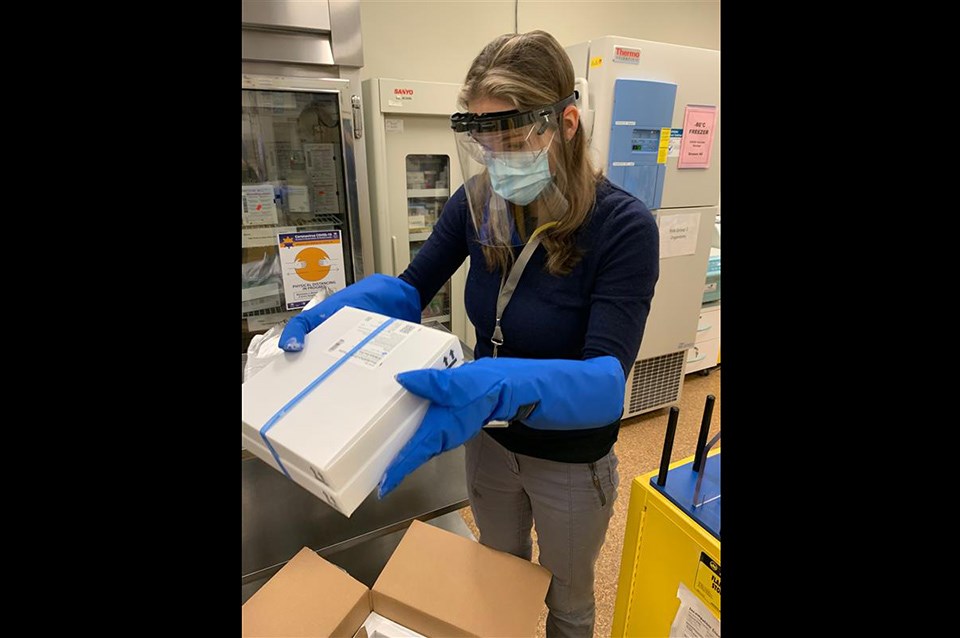It was an uncertain time in B.C. and the world when the COVID-19 pandemic struck a year ago as health officials struggled to understand the magnitude of the new situation.
Northern Interior Medical Health Officer Dr. Rakel Kling says the times were extremely challenging in terms of how health teams should be deployed, but says they continue to work together to help the north get through the pandemic.
"It was a very confusing time, absolutely in the beginning with cases coming in rapidly, you know, things changing all the time," Kling said in an interview with PrinceGeorgeMatters.
"It's very important that our teams work together and we're in constant collaboration and I think that's what ended up happening very well in the province under Dr. [Bonnie] Henry's leadership and guidance. She was able to guide B.C. to a very excellent COVID response and continues to do so in the new year."
Northern Health held its own early in the pandemic, recording few cases and avoiding major outbreaks.
But now is a different story, with the authority having the highest return rate in the province at roughly 14 per cent but the testing in the area is also extremely low, which has concerned residents.
Wondering what COVID-19 restrictions and guidelines are currently in place?
— Northern Health (@Northern_Health) November 29, 2020
- Events and social gatherings
- Restaurants and bars
- Mask requirements in indoor public settings
- Travel advisory
- Enforcement
Details on these topics and more here:https://t.co/dxbsK0Ax24 pic.twitter.com/ipeylE7Ll1
The north does not have the same amount and types of resources compared to other areas such as Vancouver Coastal Health or Fraser Health, placing major challenges on the health care system.
Kling hopes to see the trend turn for the better in 2021.
"Unfortunately, there's been a large increase in hospitalizations across the north and strain in our system," she explained.
"I know our teams are working together every day to ensure that everyone gets important medical care in the north and to ensure that this strain we're seeing isn't impacting other health services."
She adds people getting tested is what can truly help the northern authority and health officials stop the spread before it gets worse, quickly.
"We certainly want to encourage anyone with symptoms to get tested. People going to get tested is a really important part of the response. People need to know, we really need to catch those positive results so we can do the follow-up and case management and contact tracing.
"We continue to work on resources such as contact tracers. We've certainly added a large number of people to our team and we continue to review how many people are needed and who's needed to support the public health response to COVID."
An ending note in 2020 was the beginning of vaccine rollouts across Canada and in B.C. in the Pfizer COVID-19 dose as well as Moderna, the latest to be approved.
"I think an important thing we need to look forward to in the new year is the vaccine continuing to be rolled out," said Kling.
"I think that will also be an incredibly important part of the response."
Public Health Resource Nurse Jamie Hill, and Public Health Nurses Teresa MacDonald, and Kim Spencer (L-R) are shown getting prepped to administer more COVID-19 vaccines at today’s vaccination clinic in Prince George. #healthynorth pic.twitter.com/uAxai4DuZ6
— Northern Health (@Northern_Health) December 23, 2020
The other part of the response in 2021, and arguably the biggest needed, will be residents continuing to follow public health guidelines, orders and make the right decisions for themselves and the people around them.
"I know most of the majority of the population are doing their part in following all guidelines, but I think the challenge will be to ensure that everyone continues to follow all of these guidelines and public health recommendations and Dr. Henry's recommendations," Kling remarked.
"It's still going to resolve around people making the right decisions and doing the right thing."



